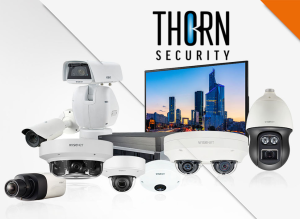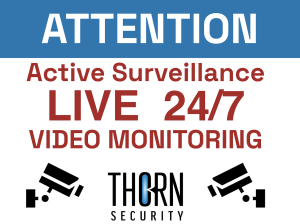Designing Effective Commercial Security Camera Systems
In today’s fast-paced world, ensuring the safety and security of commercial properties has become a top priority. A well-designed security camera system is an indispensable component of any comprehensive security plan. However, designing an effective commercial property security camera system requires careful consideration and planning to maximize its potential. Let’s explore key factors to consider, best practices, and tips to help you create a robust commercial security camera system that will protect your property, employees, and assets.
Assess Your Security Needs
Before diving into the design process, it’s essential to assess your specific security needs. Conduct a thorough risk assessment of your commercial property to identify vulnerable areas, potential threats, and critical points of interest. Consider factors such as the size of the property, entry points, parking areas, and high-value assets. This evaluation will help determine the number and types of cameras needed, as well as the ideal locations for their installation.
Choose the Right Security Camera Types
Selecting the appropriate camera types is crucial for capturing high-quality footage and addressing specific security concerns. While Thorn Security trusts in several camera brands to meet the needs of our clients, it is important to select reliable equipment from a trustworthy manufacturer. Here are some common camera types used when designing effective commercial security camera systems:
 Dome Cameras: Ideal for indoor and outdoor surveillance, these cameras offer a discreet design and a wide viewing angle, making them suitable for monitoring large areas.
Dome Cameras: Ideal for indoor and outdoor surveillance, these cameras offer a discreet design and a wide viewing angle, making them suitable for monitoring large areas.- Bullet Cameras: With a more noticeable presence, bullet cameras are effective for outdoor surveillance due to their weather-resistant housing and longer-range capabilities.
- PTZ Cameras: Pan-Tilt-Zoom cameras are versatile and can be remotely controlled, allowing operators to monitor different areas and zoom in for detailed footage.
- Thermal Cameras: Well-suited for monitoring large perimeters, thermal cameras detect heat signatures and can be used to identify potential intruders even in low-light or adverse weather conditions.
- Specialty Cameras: Depending on your unique security requirements, specialty cameras like license plate recognition cameras or facial recognition cameras can provide additional layers of security.
Strategic Security Camera Placement
To optimize the effectiveness of your security camera system, strategic camera placement is vital. Consider the following guidelines:
- Entry Points: Install cameras at all entry points, such as doors, gates, and loading docks, to capture clear images of individuals entering and exiting the premises.
- Perimeter Coverage: Ensure that cameras cover the entire perimeter of your property, including exterior walls, fences, and parking areas, to deter unauthorized access.
- High-Risk Areas: Identify high-risk areas, such as cash registers, server rooms, and storage facilities, and install cameras to closely monitor these critical locations.
- Lighting Considerations: Adequate lighting is crucial for capturing clear footage. Install cameras in well-lit areas or use cameras with built-in IR (infrared) capabilities for nighttime surveillance.
- Camera Heights: Position cameras at an optimal height to capture facial features and other identifying details effectively. Avoid placing cameras too high or too low to prevent distortion.
- Concealment and Deterrence: While some cameras should be visible to deter potential criminals, consider concealing others to capture covert surveillance footage.
Camera Network and Storage Considerations
A robust network infrastructure and reliable storage solutions are essential for seamless operation and archival of video footage. Consider the following aspects:
- Bandwidth: Assess your network’s capacity to ensure it can handle the data transfer from multiple cameras simultaneously without compromising video quality.
- Network Security: Implement encryption protocols, strong passwords, and regular software updates to protect your camera system from potential cyber threats.
- Storage Capacity: Evaluate the amount of video data you need to store and opt for a scalable storage solution that meets your requirements. Consider using Network Video Recorders (NVRs) or cloud-based storage for flexibility and accessibility.
- Backup and Redundancy: Establish backup systems and redundant storage to prevent data loss in case of hardware failures or system breaches.
Signage
 Security signage plays a key role in the awareness of security and cameras, acting a deterrent. If the awareness of security cameras can deter a theft or incident, it is much better than happing footage after the fact. Signage also plays different roles, from awareness to privacy concerns, deterrence and safety.
Security signage plays a key role in the awareness of security and cameras, acting a deterrent. If the awareness of security cameras can deter a theft or incident, it is much better than happing footage after the fact. Signage also plays different roles, from awareness to privacy concerns, deterrence and safety.
Designing a commercial property security camera system requires careful planning and consideration. By assessing your security needs, selecting the appropriate camera types, strategically placing cameras, and addressing network and storage requirements, you can create a robust and effective security solution. By investing in a well-designed security camera system, you provide peace of mind for yourself, your employees, and the protection of your valuable assets. Remember to regularly maintain and test your system to ensure optimal performance. Stay vigilant, and prioritize safety to keep your commercial property secure at all times.
Contact Thorn Security to discuss your commercial security camera system design and installation. Design, installation excellence and local support is part of what makes Thorn Security the best choice for both residential and commercial security needs in Victoria and Southern Vancouver Island



